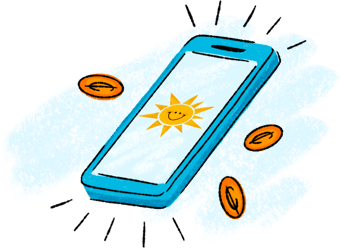In today's world, it's not uncommon for many people to carry some form of debt, whether it's in the form of student loans, credit card balances, or mortgages. While responsible debt management is a part of modern life, it's crucial to avoid falling into a debt trap that can cripple your financial well-being. This article will provide you with 10 practical debt avoidance tips to help you steer clear of financial pitfalls and pave the way for a more secure financial future.
Related Article: Why Is It Important to Know Your Credit Score?
1. Create a Realistic Budget
One of the fundamental steps in debt avoidance is to establish a realistic budget that reflects your income and expenses accurately. Creating a budget allows you to plan your spending, ensuring that you live within your means. Start by tracking your monthly expenses, including essentials like housing, groceries, transportation, and utilities. Make sure to allocate a portion of your income to savings and emergency funds to prevent unexpected expenses from leading to debt.
2. Set Clear Financial Goals
Having clear financial goals can be a powerful motivator for debt avoidance. By setting specific, measurable, and achievable goals, you can stay focused on your long-term financial well-being. Whether you aim to pay off student loans, save for a down payment on a home, or build a comfortable retirement fund, knowing your objectives will help you make informed financial decisions and avoid unnecessary debt.
3. Build an Emergency Fund
Life is full of surprises, and unexpected expenses can easily derail your financial plans. To avoid going into debt when unexpected bills arise, it's essential to establish an emergency fund. Aim to save three to six months' worth of living expenses in a separate account that you can access when needed. Having this financial safety net will help you tackle unforeseen circumstances without resorting to credit cards or loans.
4. Prioritize High-Interest Debt Repayment
If you already have debt, prioritize paying off high-interest loans, such as credit card debt. High-interest debt can quickly snowball, making it challenging to escape the cycle of borrowing. Develop a repayment strategy that focuses on clearing these debts first to reduce interest expenses and accelerate your journey to financial freedom.
5. Limit Credit Card Usage
Credit cards can be a useful financial tool when used responsibly, but they can also be a major source of debt when misused. To avoid falling into the credit card debt trap, establish a few ground rules. First, only use your credit card for purchases you can pay off in full each month. Second, monitor your spending to ensure you stay within your budget. Lastly, resist the temptation to open multiple credit card accounts, as this can lead to unmanageable debt.
6. Avoid Impulse Purchases
Impulse purchases are often a significant contributor to consumer debt. To prevent impulse buying, implement a "cooling-off" period before making any significant purchases. If you find something you want to buy, wait 24 hours before making a decision. During this time, consider whether the purchase is a need or a want, and how it aligns with your financial goals. This simple practice can help you avoid unnecessary debt.
7. Explore Debt Consolidation Options
If you're juggling multiple high-interest debts, consider debt consolidation as a strategy to simplify your financial situation. Debt consolidation involves combining multiple debts into a single, lower-interest loan. This can make managing your debt more straightforward and potentially reduce your overall interest payments. Be sure to research your options and choose a consolidation method that works best for your situation.
8. Cultivate Good Money Habits
Cultivating good money habits is a cornerstone of debt avoidance. Practicing discipline and mindfulness when it comes to your finances can help you avoid making impulsive decisions that lead to debt. A few key money habits to develop include regular savings, tracking your spending, and living below your means. Consistently practicing these habits will help you maintain financial stability.
9. Invest in Financial Education
Understanding how money works and making informed financial decisions is vital for debt avoidance. Invest in your financial education by reading books, attending seminars, or taking online courses that can help you improve your money management skills. Learning about budgeting, investing, and managing debt can empower you to make wise financial choices and stay on the path to financial security.
10. Seek Professional Advice
When facing complex financial situations or struggling to manage debt, seeking professional advice is a wise move. Financial advisors or credit counseling services can offer expert guidance on how to reduce debt, manage your finances, and build a sustainable financial future. These professionals can provide personalized strategies and help you navigate your unique financial challenges.
Long Story Short
Debt avoidance is a vital aspect of achieving financial security and ensuring a stable future. By creating a realistic budget, setting clear financial goals, and building an emergency fund, you can lay a strong foundation for financial success. Prioritizing high-interest debt repayment, limiting credit card usage, and avoiding impulse purchases will help you avoid falling into unnecessary debt traps. Exploring debt consolidation options, cultivating good money habits, and investing in financial education will empower you to make informed financial decisions.
Remember, seeking professional advice when necessary is a smart step towards managing your finances effectively. By following these debt avoidance tips and making a commitment to financial well-being, you can take control of your financial future and enjoy the peace of mind that comes with a debt-free life.
What do fish use as currency to purchase anything?
Sand Dollars! Sign up to receive important information on banking, financial tips, and jokes like this directly to your inbox






%20(4).png?width=840&height=294&name=Untitled%20(1000%20%C3%97%20350%20px)%20(4).png)



